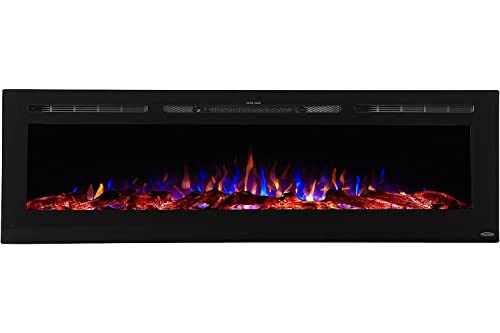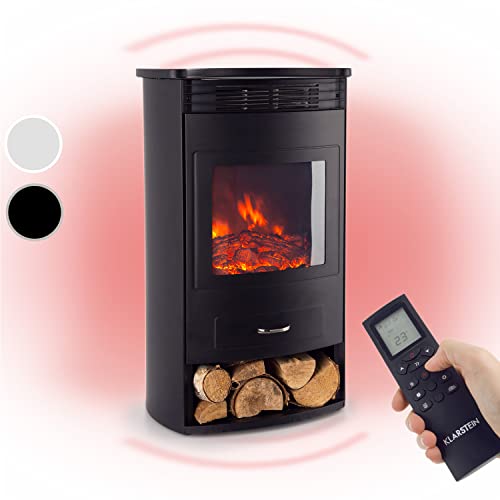 The Benefits of an Ethanol Fireplace
The Benefits of an Ethanol FireplaceEthanol fireplaces are an excellent alternative to gas or wood fires, as they don't require a flue or chimney. They don't generate smoke or ash, or create any mess and are able to be easily transferred from one place to another.
 Only use bio-ethanol on burners designed to burn the fuel. The warranty on your burner could be void in the event that you make use of other gels or fuels that are liquid.
Only use bio-ethanol on burners designed to burn the fuel. The warranty on your burner could be void in the event that you make use of other gels or fuels that are liquid.Cost
The price of a bioethanol fire place varies depending on the kind and design you pick. There are models that range that range from a few hundred dollars to a few thousand dollars, however, they are generally less expensive than wood or gas fireplace. Certain models are freestanding, while others can be affixed to a fireplace or recessed into a wall. Ethanol fires are also more ecologically green than wood-burning fires.
Bio ethanol fires are very popular because they offer a natural, beautiful flame without any smoke or soot. They can be used almost anywhere and are easy to maintain. However it is recommended to use bio ethanol fuel that is designed specifically to be used in these fireplaces. Other kinds of fuel can harm the burner, thereby increasing the danger of fire. Also, it is not recommended to keep flammable substances near the bioethanol fire.
They are ideal for heating rooms, but shouldn't be your primary source of warmth. They are more efficient than wood-burning fireplace places and can produce plenty of heat, around 2kW on average. It's not enough to heat an entire home, but it will certainly assist in warming an area.
In addition to the actual cost of an ethanol fireplace you will need to consider other expenses associated with maintaining the fireplace. The fireplace should be kept in a safe location, away from children and pets. Always follow the manufacturer's instructions for adding fuel, then putting out the flame, and allowing the burner to cool.
A fireplace made of ethanol can be a fantastic alternative to a stove that burns wood. This type of fire has the principal advantage that it doesn't require the chimney. You can save money by not having to set up and maintain a chimney. It is also more secure as opposed to other types of fireplaces. It is still a wise idea to speak to an expert before making a decision. You can be sure that the fireplace has been installed correctly and safely.
Environmental impact
An ethanol fireplace can be an eco-friendly alternative to traditional wood-burning fireplaces. It uses bioethanol fuel, which is produced by fermenting the sugar and starch components of materials from plants such as straw, corn and maize. The biofuel liquid undergoes further distillation to make it burn efficiently and cleanly. This kind of fuel is believed to be renewable energy source that produces no toxic emissions or odours. It is also free from soot and smoke. This makes it a safer option for your home.
Ethanol fireplaces aren't required to have venting or chimneys They can be put in almost any room in your house. They are easy to use and most models come with some kind of remote control. A majority of them also have an inbuilt cooling system to stop the fuel from overheating. They can be used as a primary heating source or as an additional heating source. They are also a great option for those living in condominiums or apartments.
Bioethanol fireplaces produce minimal odours. This makes them an excellent choice for homes that have people suffering from asthma or allergies. In fact, this kind of fireplace is able to be used in a baby's nursery or in a child's bedroom. Fireplaces of this kind must be kept away from items that can ignite, such as curtains or furniture.
One of the biggest advantages of a fireplace made from ethanol is its simple use. It is much easier to set up than a wood-burning fireplace and does not require complicated electrical connections or installations. The fuel that is liquid can be stored in a portable container to allow it to be easily moved from one area to another. This lets you enjoy the warmth of a fireplace without having to face the hassle of stacking, chopping and cleaning up wood.
A bioethanol fireplace produces a minimal amount of pollution. This makes it a great option for those who are concerned about the environment. These fireplaces can also can help you save energy and money.
Safety
A bioethanol fireplace is a safer alternative to an open fire. They are easy to operate, create less smoke and burn more efficiently than other alternatives. However, like all fireplaces and other appliances that generate fire they could be dangerous if they are used improperly. These fireplaces require special attention and care, which is why it is essential to read the directions carefully and follow them strictly.
If you're using a bio-ethanol fire place, make sure that it's in a well-ventilated room and at a distance from other materials that are combustible. Keep pets and children away from the fireplace. Do not move it when the fire is still burning. This could trigger an explosion.
Bioethanol fireplaces aren't quite as dangerous as wood or gas fireplaces, however there are some safety guidelines to follow in order to ensure safe operation. For instance, keep flammable objects at least 1500mm from the flame and not touching it while the fire is burning. It's also important to never add fuel to a fire that is not approved.
The burning process of bio-ethanol fire places is secure, particularly if you follow the instructions. The fuel is pumped through a vapour-accelerator, which evaporates, and then ignited with a filament. This method of combustion ensures that the fuel is completely burned, thereby eliminating odour and harmful substances such as dioxins and furans.
It is important to read and follow the instructions given by the manufacturer when installing or operating an ethanol fireplace. Moreover they should be kept clear from fire-prone materials like curtains and newspapers. They should be kept at a good distance from other household appliances and should not be placed close to sleeping animals or children.
A bio ethanol fireplace has the primary benefit that it doesn't release harmful odours or fumes. This makes it a safer option for homes with pets or children. They are also easier to use than traditional fireplaces because they don't require a chimney and do no cause carbon monoxide poisoning. These fireplaces offer a variety of benefits, including the ability to put them anywhere and move them around.
Installation
A bioethanol fireplace can bring warmth and ambiance to a space. They come in many styles and can be mounted in different ways. They can be built-in, wall-mounted or freestanding. They can also be transparent. You should always read the installation manual for a fireplace prior installing it. This will ensure that you don't have any issues during the installation process and your fireplace is safe to use.
The procedure of installing bioethanol fireplaces is simple. It involves building a frame in the wall to accommodate the fireplace and putting the burner inside. The frame should be made of a material that is not flammable. This will prevent the fire from igniting your wall. This also helps to prevent the flame from spreading to other areas of the room. The frame should be anchored to the wall using appropriate screws and dowels.
As opposed to other kinds of fireplaces ethanol fires do not require a chimney or a flue. This makes them more cost-effective for homeowners. Additionally they can be utilized in any room of the home and are easily moved from one location to another. They also don't emit any harmful gasses.
If used properly When used properly, a bioethanol fire is extremely secure. As with any fire it is essential to keep them from children and other flammable surfaces. The fuel should also be stored in a safe place and the fire must be extinguished prior to refueling.
Ethanol fireplaces are easy to maintain and don't produce ash or soot. They are an excellent choice for those who are concerned about the environmental impact of traditional wood-burning fireplaces. Ethanol fireplaces are a great alternative to electric or gas fireplaces.
Although bioethanol fireplaces can be a wonderful addition to any home but they shouldn't be used as a primary source of heat. They are designed to provide warmth and create a cozy atmosphere however they aren't powerful enough to heat a whole house. The best method to install a bioethanol fireplace is to hire an expert to do the job.








